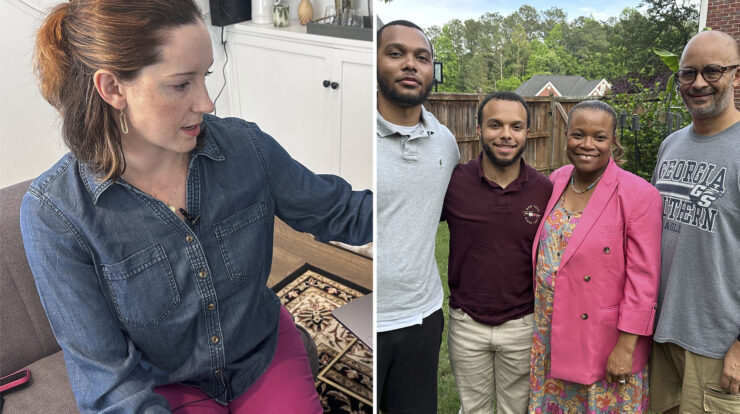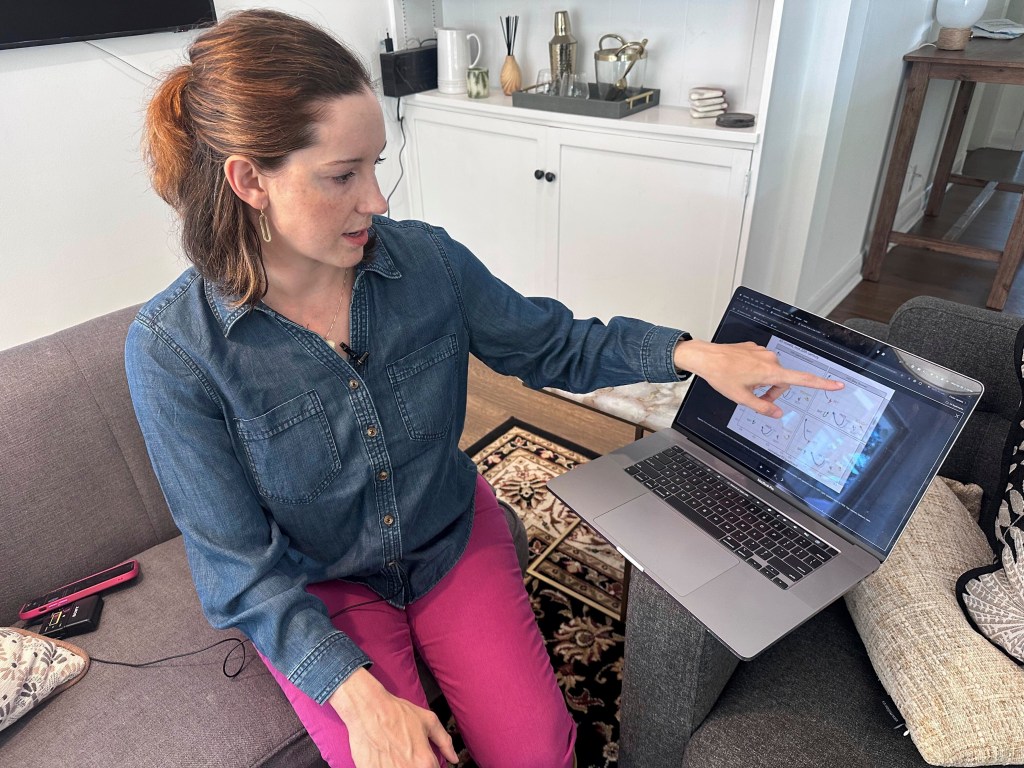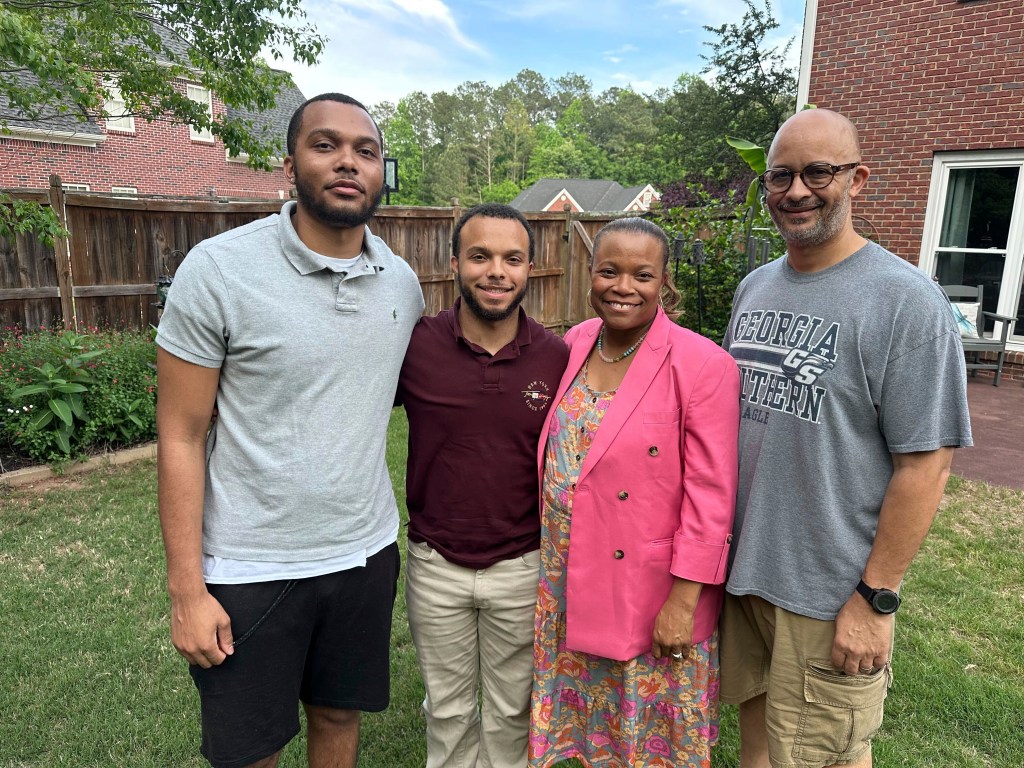
During her childhood in Atlanta during the 1940s and 1950s, Susan Levine would visit her relatives in New York City. These trips often involved her becoming the center of an informal entertainment act: her cousin would invite their friends over and charge them 25 cents each just to hear Levine speak with her Southern accent.
Even though they too grew up in Atlanta, Levine’s two sons, born more than a quarter century after her, never spoke with the accent that is perhaps the most famous regional dialect in the United States, with its elongated vowels and soft “r” sounds.
“My accent is nonexistent,” said Ira Levine, her oldest son. “People I work with, and even in school, people didn’t believe I was from Atlanta.”

The South’s dialect, featuring numerous variations, is
diminishing in certain parts of the Southern region
As individuals move to this area from various locations within the U.S. and across the globe.
Research articles released in December highlighted the decline of local accents among African American inhabitants of the Atlanta region, white working-class individuals from the New Orleans area, and those raised in Raleigh, North Carolina.
More than 5.8 million people have moved into the U.S. South so far in the 2020s, more than four times the combined total of the nation’s three other regions.
Linguists don’t believe
mass media
Has significantly contributed to shifts in language use, typically beginning in cities and spreading outward toward more remote regions.
The significant influx of migrants in late 20th century impacted regional accents.
STAY UP TO DATE WITH THE LATEST NEWS BY SUBSCRIBING TO MORNING REPORT NEWSLETTER
The traditional Southern white accent
in the Atlanta area
And similar trends were observed in various Southern metropolitan areas, reaching their height among thosebaby boomers born from 1946 to 1964 before declining for Generation X members born from 1965 to 1980 and later generations, largely due to significant internal migration during the latter half of the 20th century.
Recent studies from linguistics experts at the University of Georgia, Georgia Tech, and Brigham Young University indicate that within the past two decades, this particular linguistic pattern has been supplanted among young speakers by a dialect initially observed in California towards the end of the 1980s.
This particular dialect, identified not only in Canada but also across various regions within the U.S., has expanded to areas such as Boston, New York, and Michigan. As this occurs, these locations have seen a reduction in their distinctive local accents.
See Also

Generation Z Americans are pretending to have British accents to maintain composure and move forward.
In Raleigh, North Carolina, the catalyst for the weakening of the Southern accent occurred with the establishment of the Research Triangle Park in 1959. This extensive area filled with research and tech companies drew over ten thousand well-educated professionals from regions beyond the South.
White residents who were born after 1979, roughly a generation following the creation of the Research Triangle, generally do not speak with a Southern accent, according to linguist Sean Lundergan in a paper released in December.
Frequently, individuals not from the South incorrectly link a Southern accent with insufficient education, and as a result, some young people might be attempting to separate themselves from this stereotype.
Young individuals nowadays, particularly those who are well-educated, prefer not to come across as being overly tied to their particular hometown,” stated Lelia Glass, a linguist at Georgia Tech, who co-authored the study on Atlanta. “Instead, they aim for an accent that seems less localized and more indicative of widespread mobility.
Younger individuals exhibit varying accents.
The Southern dialect among Black people in Atlanta has dropped off in recent decades mainly because of an influx of African Americans from northern U.S. cities in what has been described as the “Reverse Great Migration.”
From around 1910 to 1970, during the Great Migration, many African Americans relocated from southern states to urban centers in the North such as New York City, Detroit, and Chicago.
A significant number of their grandchildren and great-grandchildren relocated to southern cities such as Atlanta in substantial numbers throughout the latter part of the 20th century and into the early 21st century. These individuals are also more inclined to hold college degrees.
According to a study released in December, researchers discovered that Southern accents among African Americans have declined significantly for Generation Z members, who were born between 1997 and 2012.

The same researchers had earlier examined Southern accents amongst whites in Atlanta.
Michelle and Richard Beck, who belong to Generation X and reside in the Atlanta region, speak with Southern accents. However, this accent isn’t present in their two sons, who were both born in 1998 and 2001.
I believe they express themselves more clearly than I do,” stated Richard Beck, a law enforcement officer. “When it comes to the Southern accent, their dialect isn’t as pronounced as mine.
See Also

Forget about it! AI struggles big time with New York City, New Jersey, and Long Island accents.
The ‘yat’ accent of New Orleans has lessened.
Unlike other accents that have changed because of an influx of new residents, the distinctive, white working-class “yat” accent of New Orleans has declined as many locals left following the devastating Hurricane Katrina in 2005.
The accent is distinct from other regional accents in the South and often described as sounding as much like Brooklynese as Southern.
The hurricane was a “catastrophic” language change event for New Orleans since it displaced around a quarter million residents in the first year after the storm and brought in tens of thousands of outsiders in the following decade.
The diminishment of the “yat” accent is most noticeable in millennials, who were adolescents when Katrina hit, since they were exposed to other ways of speaking during a key time for linguistic development, Virginia Tech sociolinguist Katie Carmichael said in a paper published in December.
Cheryl Wilson Lanier, a 64-year-old who grew up in Chalmette, Louisiana, one of the New Orleans suburbs where the accent was most prevalent, worries that part of the region’s uniqueness will be lost if the accent disappears.
“It’s kind of like we’re losing our distinct personality,” she said.
Southern identity changing
While it is diminishing in many urban areas, the Southern accent is unlikely to disappear completely because “accents are an incredibly straightforward way of showing other people something about ourselves,” said University of Georgia linguist Margaret Renwick, one of the authors of the Atlanta studies.
It may instead reflect a change in how younger speakers view Southern identity, with a regional accent not as closely associated with what is considered Southern as in previous generations, and linguistic boundaries less important than other factors, she said.
“So young people in the Atlanta area or Raleigh area have a different vision of what life is in the South,” Renwick said. “And it’s not the same as the one that their parents or grandparents grew up with.”






